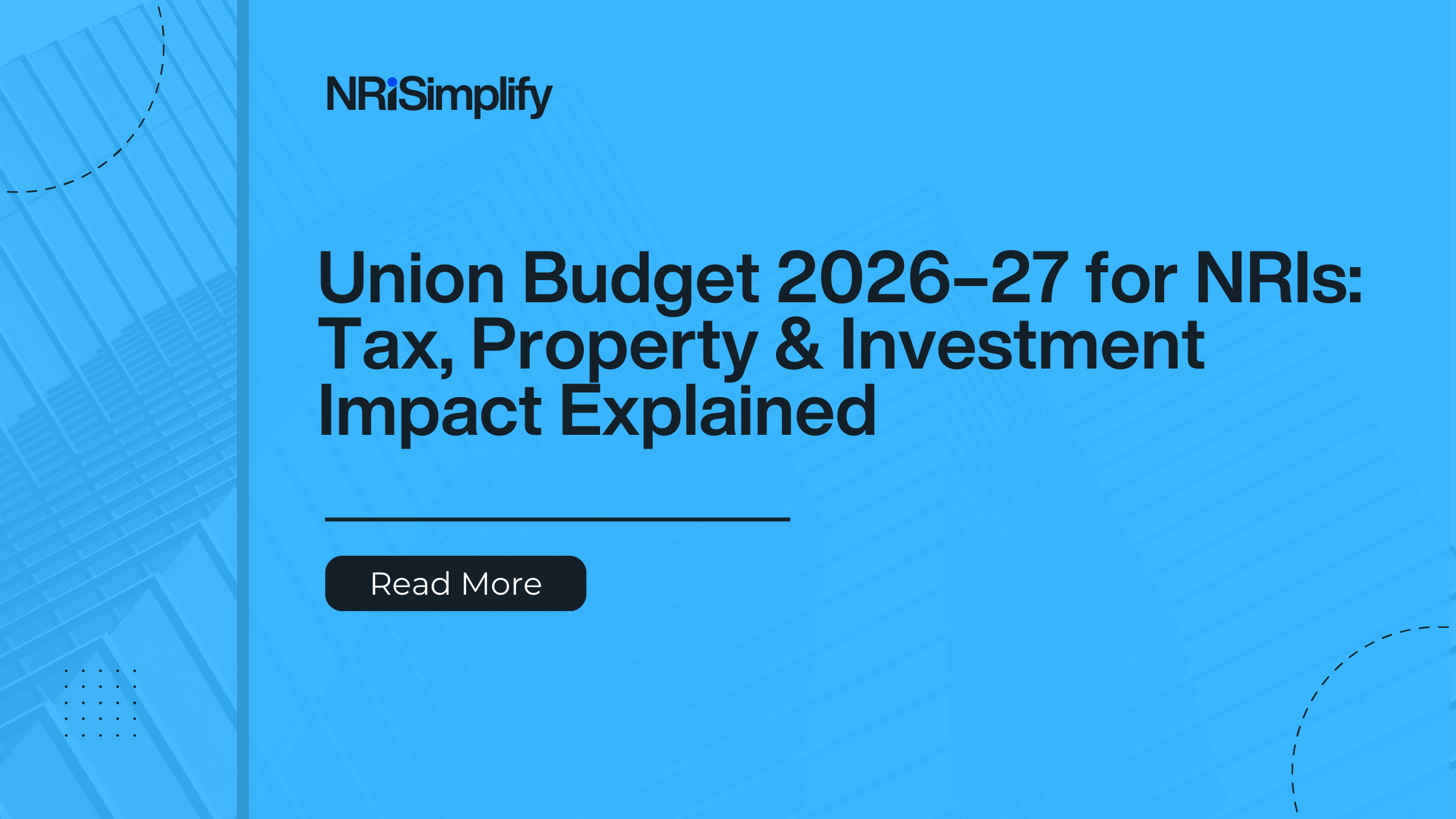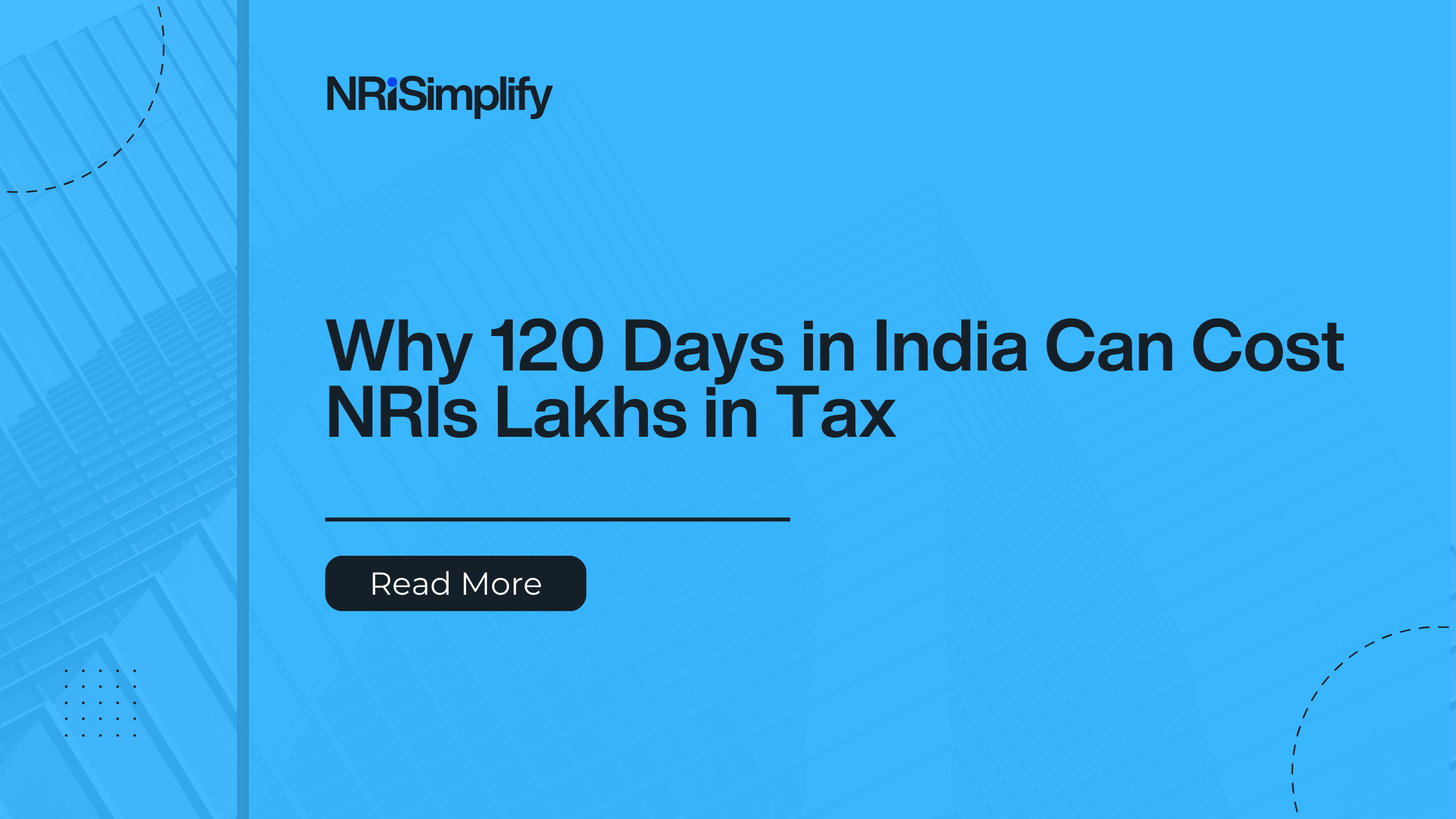India has always been a promising destination for Non-Resident Indians (NRIs) looking to invest. With a rapidly growing economy, increasing foreign investments, and sector-specific growth, NRIs are capitalizing on a variety of investment options for NRIs in India. From real estate investments and mutual funds to fixed deposits and government bonds, the options available are abundant. This comprehensive guide highlights key investment opportunities for NRIs in India, along with benefits, challenges, and tax implications.
High-Return Investment Opportunities for NRIs
1. Direct Equity Investments
Investing in Indian equities has the potential to deliver significant returns over the long term. NRIs can invest through a Portfolio Investment Scheme (PIS) linked to a Demat account. This enables participation in India’s dynamic stock market.
Key Considerations:
- Long-term gains (held for over 1 year) are taxed at 10%.
- Short-term gains (held for less than 1 year) are taxed at 15%.
- NRIs are restricted from day trading; they can only sell stocks delivered to them.
2. Mutual Funds
Indian mutual funds offer NRIs diverse investment options such as equity funds, debt funds, and balanced funds. These funds are managed by professionals and present a relatively lower risk compared to direct equity investments.
Highlights:
- Gains from equity funds held for more than 1 year are taxed at 10%.
- Non-equity funds are subject to 20% tax after indexation if held for over 3 years.
- Tax Deducted at Source (TDS) applies to NRIs.
3. Real Estate Investment in India
Real estate is a favorite investment avenue for NRIs, offering long-term capital appreciation and steady rental income. NRIs can invest in residential and commercial properties but are restricted from purchasing agricultural land.
Challenges:
- Legal clearances, property management, and taxation complexities can be barriers.
Taxation:
- Long-Term Capital Gains (LTCG): Properties held over 24 months are taxed at 12.5% (post-July 2024 registration) or 20% with indexation (pre-July 2024 registration).
- Short-Term Capital Gains (STCG) are taxed at up to 30%.
For more insights, read our blog on NRIs Selling Property in India.
Secure Investment Options for NRIs
1. Fixed Deposits (FDs)
Indian banks offer attractive interest rates for NRIs in NRE and NRO fixed deposits, making them a low-risk investment option.
Key Points:
- NRE FDs offer tax-free interest.
- NRO FDs are taxed at 30%, with provisions for claiming refunds under Double Taxation Avoidance Agreements (DTAA).
2. National Pension Scheme (NPS)
NRIs between the ages of 18 and 60 can invest in NPS to build a retirement corpus. Contributions are made across equity, corporate bonds, and government securities.
Key Considerations:
- On attaining 60 years: Minimum of 40% of the corpus must be invested in an annuity system.
- Before 60 years (after 5 years of contribution): Up to 20% of the corpus can be withdrawn as a lump sum.
Taxation:
Annuities purchased from the corpus are taxable.
3. Government Bonds and Securities
NRIs can invest in treasury bills, government bonds, and public sector unit (PSU) bonds. These options are ideal for conservative investors seeking stable returns.
Taxation and Regulatory Framework for NRIs
NRIs must adhere to India’s taxation laws and regulatory frameworks to ensure compliance.
- Taxation: Income from investments is subject to TDS. NRIs can claim refunds or lower tax rates under DTAA agreements.
- FEMA Guidelines: Govern the transfer and repatriation of funds for NRIs.
- Repatriation of Funds: Investments made through NRE accounts are fully repatriable, while those made through NRO accounts require additional documentation.
Top Investment Tips for NRIs
1. Define Your Goals:
Understand your financial objectives and risk appetite before choosing investment avenues.
2. Diversify Your Portfolio:
Depending on your age and risk appetite, consider options like equities for growth, mutual funds for balance, or fixed deposits for security.
3. Stay Informed:
Regularly update yourself on regulatory changes, especially regarding taxation and FEMA.
4. Seek Professional Advice:
Engage financial advisors for tailored investment strategies and compliance guidance.
Why Invest in India?
India’s growing economy, young demographics, and improving infrastructure create an ideal environment for investment. Whether you are interested in equity markets, real estate, or government bonds, India offers a wealth of opportunities. With proper planning and the right investment mix, NRIs can achieve significant long-term growth while contributing to India’s economic progress.
How NRI Simplify Can Help
Navigating the Indian investment landscape can be challenging, especially with evolving regulations. At NRI Simplify, we offer:
- Comprehensive Guidance: On taxation, repatriation, and investment planning.
- Tailored Strategies: Customized solutions aligned with your financial goals.
- End-to-End Support: Assistance with documentation, compliance, and fund management.
Contact NRI Simplify today to explore the best investment opportunities in India and make the most of your NRI status.
Conclusion
India offers a wide array of investment options for NRIs, ranging from high-growth equity markets to secure fixed deposits. By understanding the regulatory framework and leveraging expert advice, NRIs can make informed decisions to grow their wealth and secure their financial future.
Frequently Asked Questions (FAQs)
Q1: Why should NRIs invest in India?
NRIs invest in India for multiple reasons, including high return potential, emotional ties, rental income, and portfolio diversification. NRIs can also benefit from tax-saving investment avenues to reduce their tax liability on Indian income.
Q2: Is it a good idea for NRIs to buy property in India?
Yes, investing in Indian property is a strategic move for NRIs, offering long-term appreciation, rental income, and a secure asset in a growing economy.
Q3: Can NRIs buy any type of property in India?
NRIs can invest in residential and commercial properties but cannot purchase agricultural land, farmhouses, or plantation properties as per FEMA regulations. However, they can inherit such properties.
Q4: How can NRIs finance property purchases in India?
NRIs can finance property purchases through self-funding, NRE/NRO accounts, or home loans from Indian banks. Most banks offer NRI-specific home loan products with easy processing.
Q5: What are the tax implications of real estate investments in India for NRIs?
NRIs are subject to TDS on rental income and capital gains tax when selling property. Capital gains exemptions are available under Section 54 (reinvestment in residential property) and Section 54EC (investment in government bonds).
Q6: Can NRIs repatriate the sale proceeds of property investments?
Yes, NRIs can repatriate the sale proceeds of property investments up to USD 1 million per year, subject to FEMA regulations. Repatriation requires filing Form 15CA/15CB for tax clearance.






